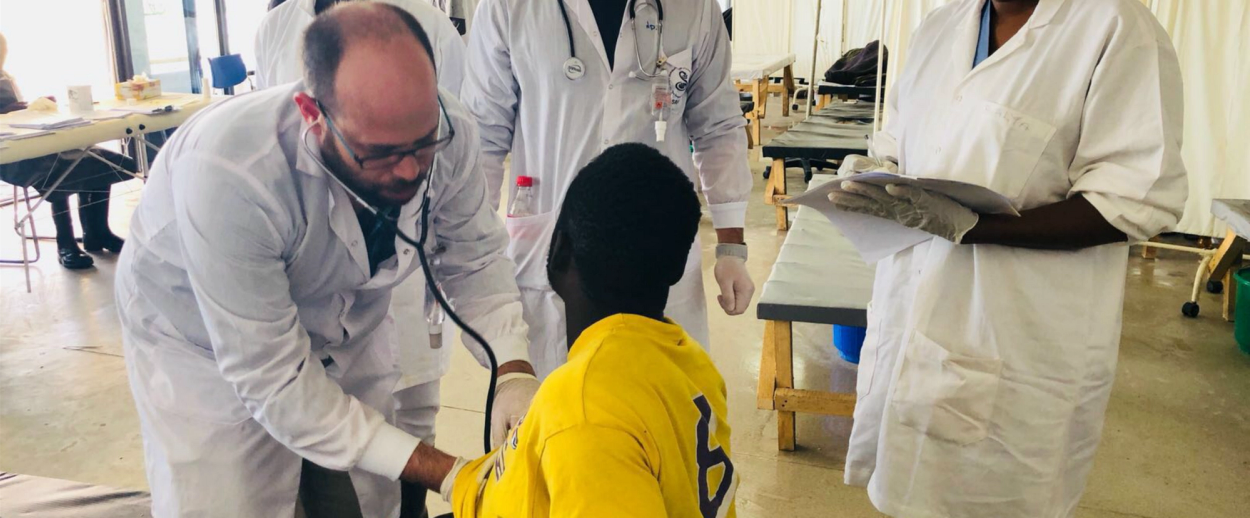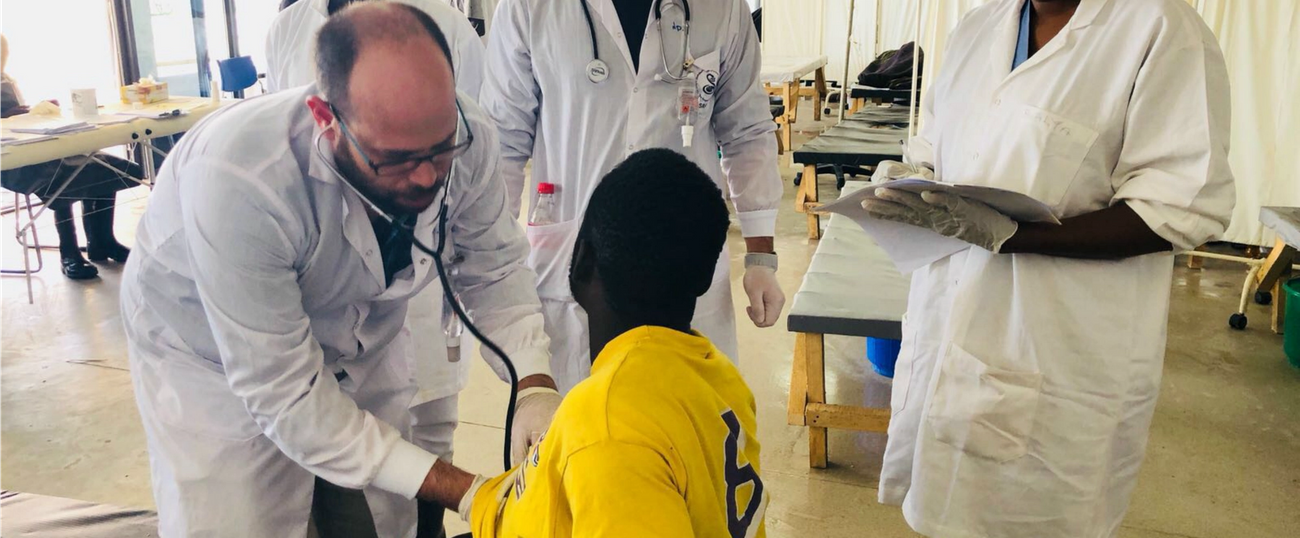New Israeli Center Will Dispatch Doctors to Provide Urgent Humanitarian Aid to Countries in Need
Dr. Elhanan Bar-On and his team have already helped patients everywhere from Haiti to Zambia




Over the last few months, Israel’s premier hospital, Sheba Medical Center in Tel Hashomer, has sent delegations of medical experts on several humanitarian missions around the world. Most notably, a team traveled to Lusaka, Zambia, to help contain a deadly outbreak of cholera, while a group of ophthalmologists is currently in Papua New Guinea, performing eye surgeries in remote villages.
The director of Sheba’s newly established Center for Disaster Medicine and Humanitarian Response, Elhanan Bar-On, was in New York this week to speak at a few events, including the Jerusalem Post’s annual conference.
Bar-On is a pediatric orthopedic surgeon, and serves as a lieutenant colonel in the medical corps reserves of the Israel Defense Forces. Over the years, he’s joined several humanitarian aid missions led by the IDF, heading the establishment of field hospitals after earthquakes in Haiti, India, and Nepal, as well as Typhoon Yolanda in the Philippines. He’s also worked with the International Red Cross and other humanitarian organizations.
“For big disasters needing medical response, the IDF usually dispatches a big field hospital, deploying 100, 150 people for about two weeks,” said Bar-On. “What we do at Sheba is somewhat different.” The center, he explained, responds also to smaller emergencies and carries research on disaster response.
In January, the center was asked to help with the outbreak of cholera in Zambia, which had taken the lives of 74 people and was affecting thousands.
Upon arrival, the Israeli team—which included two physicians, two nurses, and a lab technician—joined the local team of physicians, who had established a field hospital in a stadium. Sheba’s team set up a lab to analyze medical samples and diagnose the patients on the spot. “We were a game changer.”
Humanitarian response, however, is not only needed with acute disasters. “Many people in the world don’t have access to medical care,” the director said. The center deploys teams to treat patients in their countries and sometimes helps patients fly to Israel to receive special treatments at Sheba.
“One of our big advantages,” the director continued, “is that we are situated in a very big hospital, which gives us the ability to mobilize experts and equipment, and to access medication stocks. We have this at our fingertips.”
In order for Sheba to address an emergency, there has to be a need and a request, said Bar-On: “We don’t just impose ourselves.” When the center is contacted, it does an assessment of the emergency, appoints the team of experts who will travel to the region, and allocates the needed funding for the mission. “We’re completely dependent on donations.”
Simone Somekh is a New York-based author and journalist. He’s lived and worked in Italy, Israel, and the United States.